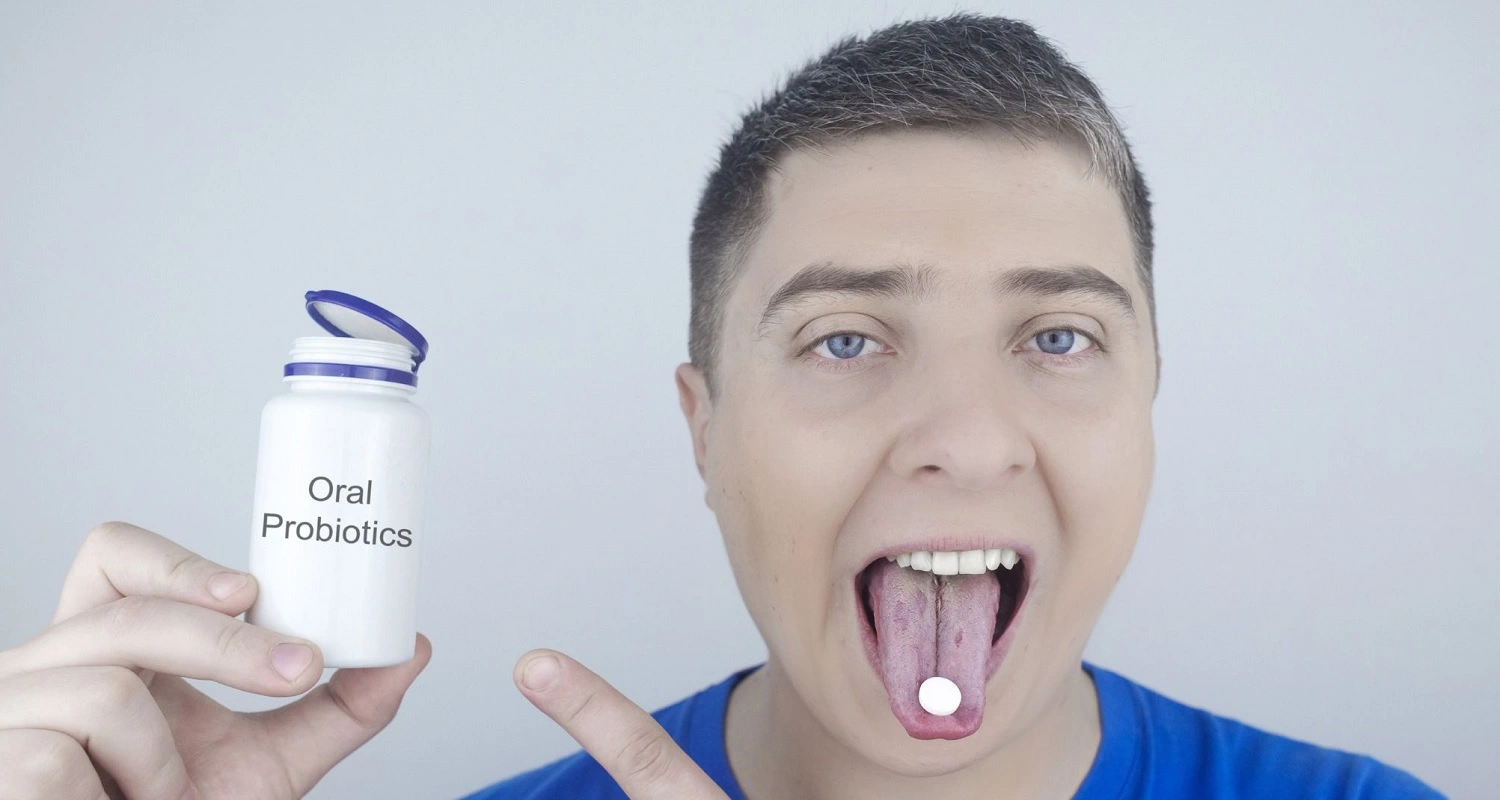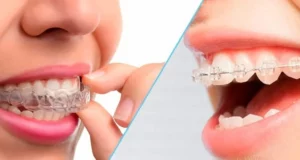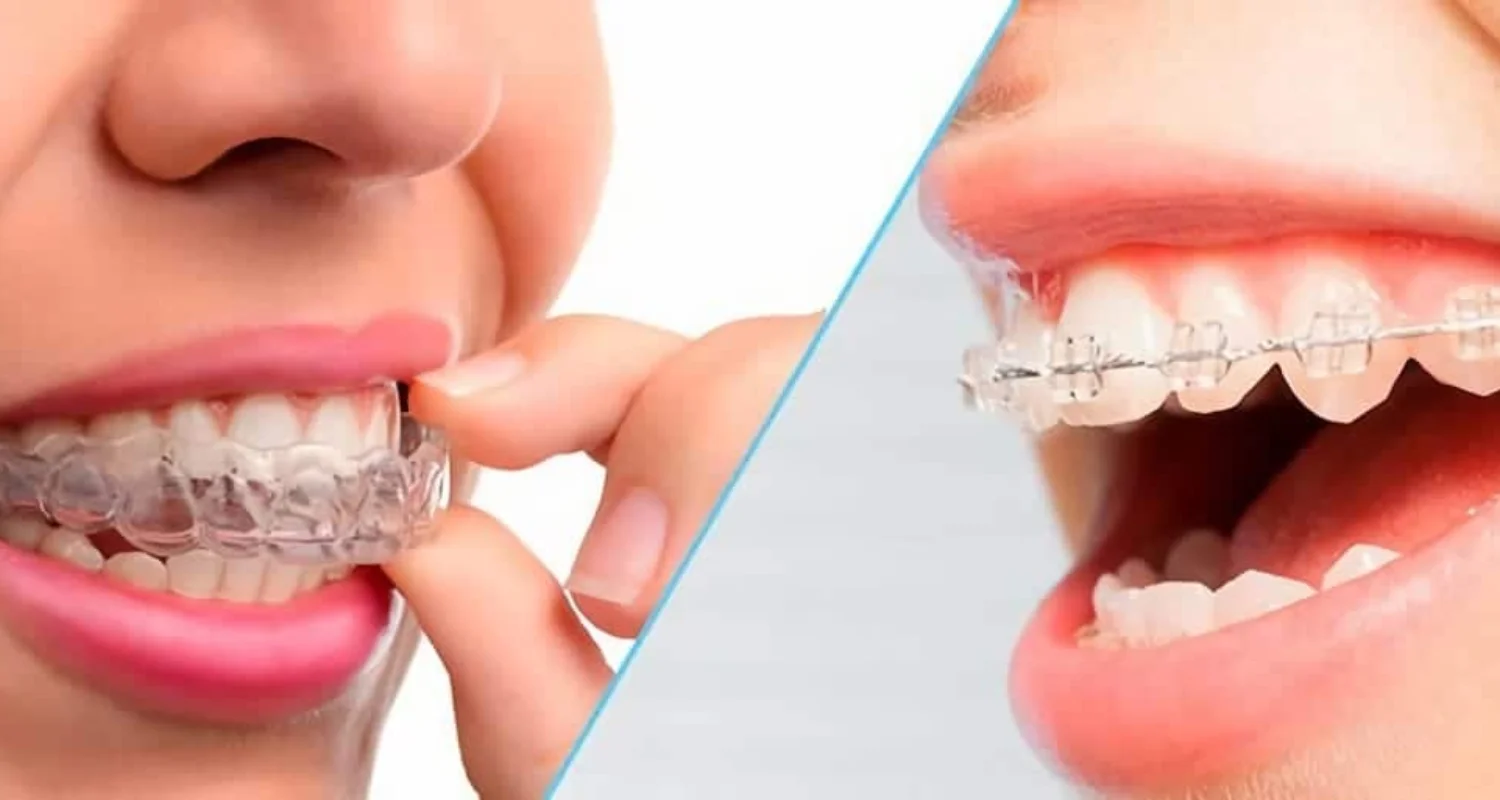Last Updated on: 2nd July 2024, 07:41 am
✓ Fact Checked 🕓
❙ Our team of writers, editors, and medical experts rigorously evaluates each article to ensure the information is accurate and exclusively cites reputable sources.
❙ We regularly assess how the content in this article aligns with current scientific literature and expert recommendations in order to provide the most up-to-date research.
Exploring the Positive Impacts: What are the Benefits of Probiotics on Oral Health?
Probiotics are rising to the forefront of the oral health industry, opening up new possibilities for dental treatment. These good bacteria have been known to improve gut health, but they are also very useful to oral health. Probiotics provide a multifaceted strategy to address dental problems, ranging from gum disease to cavities by restoring the balance of the oral microbiota. We examine the surprising advantages of probiotics on oral health in this in-depth overview, including how they support strong gums, combat plaque, improve breath, and more.
Probiotics have many advantages for dental wellness in addition to their well-known capacity to support digestive health. These good bacteria bring the oral microbiome back into balance, helping to fight off harmful pathogens and create a healthier oral environment. Probiotics support various aspects of oral health, such as gum health, plaque reduction, fresher breath, cavity prevention, and enamel strengthening, through their antimicrobial qualities and capacity to produce beneficial metabolites.
How Can Probiotics Improve Gum Health?

Probiotics are essential for improving gum health by reducing inflammation and promoting the growth of good bacteria in the oral microbiome. Lactobacillus reuteri and Lactobacillus brevis, in particular, have been found to effectively fight gum disease by preventing the growth of harmful bacteria and enhancing gum health. Products like chewing gums, lozenges, and yogurt fortified with these probiotic strains offer convenient ways to improve oral health by reducing plaque buildup and alleviating gum inflammation associated with periodontal disease.
How can Probiotics Fight Plaque?
Plaque buildup is a common dental issue that can lead to cavities and gum disease if left untreated. Fortunately, probiotics offer a natural solution to prevent plaque formation. By competing with and displacing harmful bacteria, probiotics help disrupt plaque formation and reduce the risk of cavities. Studies have shown that incorporating probiotics into one’s oral hygiene routine can lead to significant reductions in plaque buildup and a lower risk of dental caries.
Probiotics for Fresher Breath: How Does It Work?
Bad breath, also known as halitosis, can signal oral health issues and cause social discomfort. Probiotics restore the balance of the oral microbiome and prevent the growth of bacteria that cause odor. Certain strains, like Weissella cibaria and Streptococcus salivarius, have shown promise in reducing the synthesis of volatile sulfur compounds that cause halitosis. Including probiotics in one’s oral hygiene regimen ensures long-lasting freshness and confidence in social situations, whether via probiotic mouthwashes or tablets.
1. Can Probiotics Reduce the Risk of Cavities?
Cavities, often known as dental caries, are a common oral health risk for people of all ages. Probiotics—specifically, the Lactobacillus and Bifidobacterium strains found in yogurt and other fermented foods—offer a natural way to lower your risk. These good bacteria help maintain a healthier oral environment by preventing the growth of germs that cause cavities and by neutralizing acids that erode enamel. You can improve your oral health and possibly lower your risk of cavities for a whiter, healthier smile by including foods rich in probiotics in your diet or by taking supplements.
2. Strengthening Enamel with Probiotics
The outer covering of teeth, known as tooth enamel, is essential for guarding against sensitivity and decay. Probiotics may help strengthen tooth enamel and improve general oral health. Lactobacillus rhamnosus and Lactobacillus casei are two probiotic strains that may aid in the remineralization process, strengthening and repairing damaged enamel, according to research. Probiotics can be used to help people maintain the resilience and health of their tooth enamel, lowering the risk of decay and sensitivity.

3. Probiotics for Braces and prostheses
Braces and other orthodontic appliances are cozy hideouts for bad bacteria. Individuals wearing braces, particularly children, struggle to maintain proper oral hygiene, which allows these bacteria to grow and lead to cavities. Research indicates that eating foods high in probiotics like some yogurt, helps prevent tooth decay even in the face of orthodontic difficulties.
4. Probiotics against Oral Fungus
Candida is a fungal enemy that grows in the mouth and can seriously harm dental health, especially in those who are more prone. However, research shows that some probiotics—most notably Lactobacilli—have antifungal qualities. You can reduce the growth of Candida fungus and lessen their chance of developing oral fungal infections by including foods high in probiotics in your diet.
Incorporating Probiotics Into Your Oral Health Routine
It’s not as hard as you might believe to incorporate probiotics into your regular dental hygiene regimen. You have a lot of alternatives to support your dental health, from probiotic-rich meals like yogurt and kefir to specific probiotic supplements and oral hygiene items. For added convenience, use probiotic toothpaste and mouthwash, or think about including probiotic foods or supplements in your diet. As is customary, you should always speak with your dentist before making any big adjustments to your oral hygiene regimen.
Probiotic Foods and Supplements to Add to your Diet

You can increase your probiotic intake through food or supplements, like yogurt, kefir, miso, kimchi, sourdough bread, and sour pickles. Supplements offer a concentrated dose of probiotics and come in various forms like pills, powders, or mouthwashes.
Conclusion
To sum up, there are a lot of advantages to probiotics on oral health that cannot be overemphasized. Probiotics provide a natural and comprehensive approach to dental care by strengthening enamel, promoting gum health, and fighting plaque. You may support overall dental wellness and have a brighter, healthier smile by including probiotic-rich foods and supplements in your regular routine and practicing proper oral hygiene. To ensure you maximize the benefits of probiotics for improving your dental health journey, always seek the guidance of a dental professional who will customize a plan for your specific oral health needs.
Frequently Asked Questions
How do oral probiotics contribute to oral health?
Oral probiotics promote a balanced oral microbiome by increasing beneficial bacteria and reducing harmful ones, thereby fighting oral diseases.
Are oral probiotics more effective than traditional mouthwash?
While mouthwash targets all bacteria, oral probiotics focus on increasing beneficial bacteria, offering long-term oral health benefits.
Can probiotics help strengthen and remineralize teeth?
Yes, probiotics reduce harmful bacteria responsible for tooth decay, contributing to enamel remineralization and strengthening.
Is it possible for probiotics to alleviate gum disease?
Probiotics show promise in reducing bacteria associated with gum disease and may offer anti-inflammatory properties to support gum healing.
How long do oral probiotics take to work?
The time it takes for oral probiotics to show results will vary, depending upon the condition being treated and their specific formulation. While some people may notice improvements within a few days, it might take several months for others to experience the full benefits. As a general rule, it’s recommended to give oral probiotics a trial period of two to three months to assess their effectiveness properly. Always consult with your dentist before starting probiotics and don’t hesitate to discuss any questions or concerns you have during their use. Remember to follow the recommended dosing and instructions provided by the manufacturer to ensure you’re using the products safely and effectively.
How to take oral probiotics?
To make sure oral probiotics work effectively, it’s essential to consume them correctly. Instead of just swallowing a pill right away, opt for chewable tablets, gummies, or lozenges designed for oral use, allowing them to sit in the mouth before swallowing for optimal absorption.
Are there any side effects of oral probiotics?
While generally safe, individuals with weakened immune systems should be cautious, and temporary side effects such as mild stomach upset may occur initially.
Share:
References
1. Duggal, N. (2017, April 12). 5 ways oral probiotics can keep your mouth healthy. Healthline. https://www.healthline.com/health/oral-probiotics#side-effects
2. Probiotics for oral health: myth or reality? (n.d.). http://www.cda-adc.ca/jcda/vol-75/issue-8/585.html
3. Rad, A. H., Pourjafar, H., & Mirzakhani, E. (2023). A comprehensive review of the application of probiotics and postbiotics in oral health. Frontiers in Cellular and Infection Microbiology, 13. https://doi.org/10.3389/fcimb.2023.1120995
4. Shirbhate, U., Bajaj, P., Chandak, M., Jaiswal, P., Sarangi, S., Suchak, D., & Bharti, L. (2023). Clinical
Implications of probiotics in oral and periodontal health: A Comprehensive review. Cureus.https://doi.org/10.7759/cureus.51177
5. Haukioja A. (2010). Probiotics and oral health. European journal of dentistry, 4(3), 348–355. https://www.ncbi.nlm.nih.gov/pmc/articles/PMC2897872/














